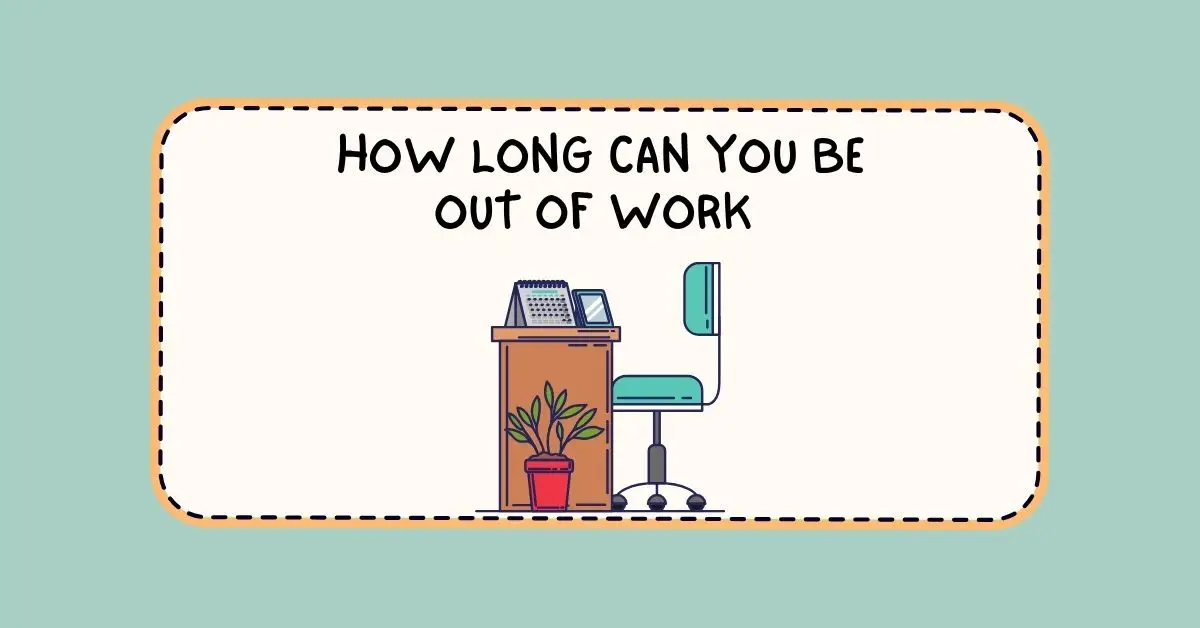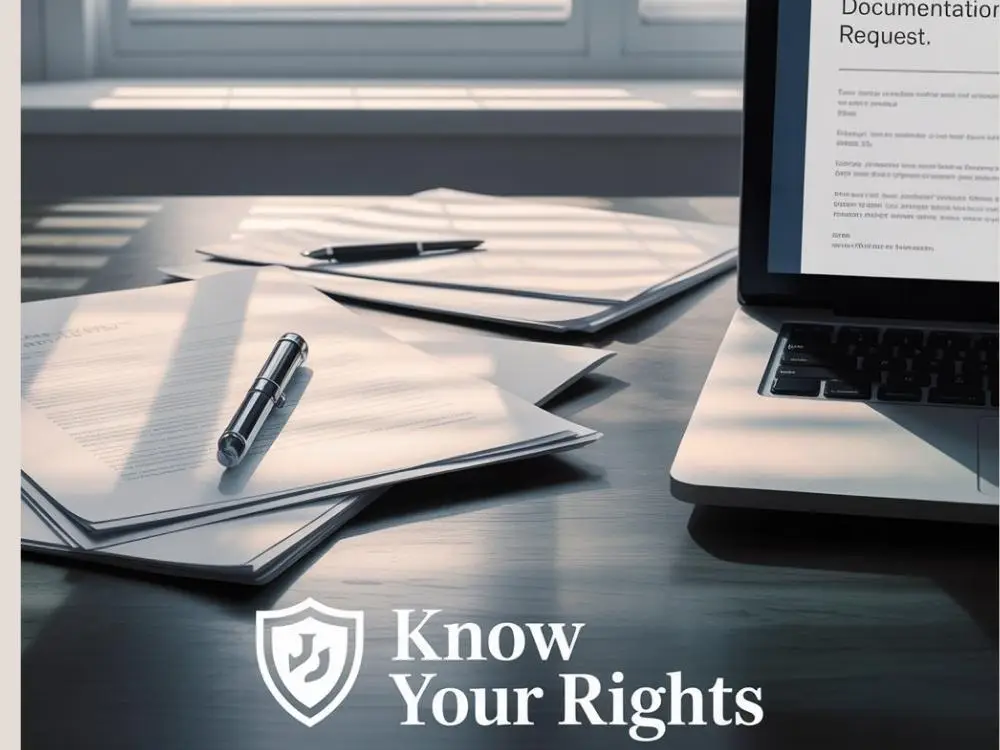
How Long Can You Be Out of Work Before Needing Documentation?
In workplaces, you may need to request leave sometimes. Maybe you caught a nasty flu or have a legitimate excuse to get out of work. For any situation, it's necessary to understand at what point your absence may begin to raise concerns with your employer.
You should also understand when to present a valid document to your employer or HR department. As someone who has navigated workplace leave policies professionally and helped employees understand their rights for over 3 years, I've seen how confusing these requirements can be. Want to know everything about protecting yourself while taking necessary time off? Let's explore.
Key Takeaways
- Learn when employers actually require documentation for being out of work.
- Understand which types of absences always need proof, from medical leave to workers' compensation claims.
- Discover what to do when you can't get documentation and how to communicate with your employer professionally.
One to Two Days Off (No Documentation Needed)
Taking one or two days off is common in almost any type of job. This would usually cover short-term situations of illness or emergency that don't require any formal documentation. Most workplaces have some sort of paid time off (PTO) or sick leave policy to typically cover these absences. Plus, companies allow short absences with just a verbal or emailed notice.
Some common no-doc situations
- Flu or Cold Symptoms
- Doctor Appointment
- Childcare Situation
- Car Troubles
- Mental Health Day
Also, you should remember that employers closely notice any uneven patterns when you take these short absences more frequently and around weekends or holidays. Therefore, only take leave when it's absolutely necessary, and avoid submitting fabricated excuses.
Three or More Consecutive Days - Expect to Show Proof
Most employers will want to see documentation if you’ve been out of work for three or more consecutive days. This isn’t necessarily because they don’t trust you. It’s often just part of their HR or insurance policy. Let's see the situations for common documentation requests:
- Doctor’s note for illness
- Hospital discharge papers
- Bereavement leave notice (like an obituary or funeral program)
- Court notice for jury duty or legal issues
The thing is, the 3-day rule isn't universally applicable. Some companies may want proof after the first day, while others may be more lenient where there are a lot of factors influencing, especially your company size and their internal policies. If you're unsure about your workplace's documentation policy, the employee handbook is likely your best bet.
What Kind of Absences Usually Require Documentation?
While the three-day rule covers most situations, certain types of absences almost always trigger documentation requests, regardless of how long you're out.
| Type of Absence | Documentation Requirements & Details |
|---|---|
| Medical situations beyond general illness | Typically need more than a simple doctor's note. If you recently had surgery or are dealing with a chronic medical condition that would affect your long-term ability to work. In this situation, your employer will ask for medical details. This isn't because they are snooping in your life, but they need to know what steps to take to accommodate you, and if they need to schedule coverage or not. |
| Educational commitments | Tend to catch people off guard. If you are going to be away from work for a professional exam or continuing education, you should provide documents related to your exam timetable or proof of enrollment in the education program. It demonstrates an intention to be engaged in a full, focused manner and that an experience outside of work is about your growth and learning, and not an opportunity to take time off. |
| Maternity and parental leave | Require substantial documentation upfront. You'll need medical certification from your doctor confirming your due date, and many employers want this week or even months in advance. This isn't just for planning. It's required for FMLA compliance and insurance purposes. |
| Workers' compensation | Claims documentation requirements that have to be taken right away. If you got injured while working, you will need medical records, incident reports, your recovery documentation, and more. The workers' compensation insurance will be all about it. |
| Extended bereavement situations | Also warrant extra documentation. While most companies don't question immediate family losses, taking time off for distant relatives or attending multiple services might require obituaries or funeral programs. |
Does Documentation to Miss Work Vary by Country?
Yes, because what is normal in one country may feel strict or lenient in another. So, recognizing the local labor law can help save you from an awkward situation with your employer. Let's check this out:
United States
- Most companies follow the 3-day rule. You'll need documentation after missing 3 consecutive days.
- FMLA (Family and Medical Leave Act) kicks in for extended medical situations and requires proper medical certification.
United Kingdom
- You can self-certify illness for up to 7 days without any paperwork.
- Beyond that, you'll need a fit note from your doctor explaining your condition.
Canada
- Similar to the UK, most provinces allow self-certification for short-term illness (usually 3-5 days).
- For extended leave, medical certificates are required, and each province has its own employment standards.
Can You Refuse to Provide Documentation for Missing Work?

It's always better to stick with your company's policies. Most employers have written policies to request documentation for extended leave periods (more than 3-5 business days), and outright refusal usually backfires and leads to:
- Loss of paid leave benefits
- Unpaid time off
- Formal disciplinary warnings
- Potential termination for policy violations
However, some documentation requests cross legal lines. Employers can't overstep their authority and require unnecessary details about a personal condition or violate privacy laws. The better approach is to communicate early. If getting documentation is difficult, explain your situation honestly and suggest alternatives like unpaid leave or makeup hours.
How to Submit Documentation the Right Way
Here are a few professional tips that you can follow for handing in your documentation:
- Send it promptly. Don’t wait until you’re back at work.
- Use email or your HR platform and always keep a record. Also, refer to our guide about funny email sign-offs to improve your work email.
- Prefer to keep your message short and professional. You don’t need to overshare details.
Sample Email
Subject: Medical Documentation for Recent Absence
Hi [Manager Name],
Please find the doctor's note for the time I was absent from [Date] to [Date]. Let me know if you need anything else.
Best,
[Your Name]
What If You Don't Have Documentation?
Sometimes getting documentation isn't possible, maybe you were sick over the weekend and couldn't afford a doctor visit. When you face this situation, don't freak out. Just inform your employer, where you could tell them what happened. Try to offer alternatives like unpaid leave or annual leave instead.
Most reasonable employers will understand that when you communicate ASAP. Plus, you should demonstrate that you weren't trying to take advantage of the situation in the first place.
Wrapping Up
Nobody wants to deal with documentation when they're out of work sick or handling emergencies. But knowing these rules saves you headaches later. When you're unsure about documentation requirements, just ask your boss or HR upfront. They'd rather answer questions than deal with confusion. Stay honest and communicate early to make things smooth and ensure job security.
FAQs
Q1: Do part-time employees have the same documentation requirements?
It depends on the company policy. Most employers use the same rules, but there are employers that have different documentation requirements for part-time workers. Take a look at your employment contract.
Q2: Can my employer ask for specific medical details in documentation?
Employers can only request basic information like dates and fitness for work. They cannot demand specific diagnoses or personal medical details.
Explore Related Posts
https://smarttoolsai.com/post/how-to-call-in-sick
.webp)